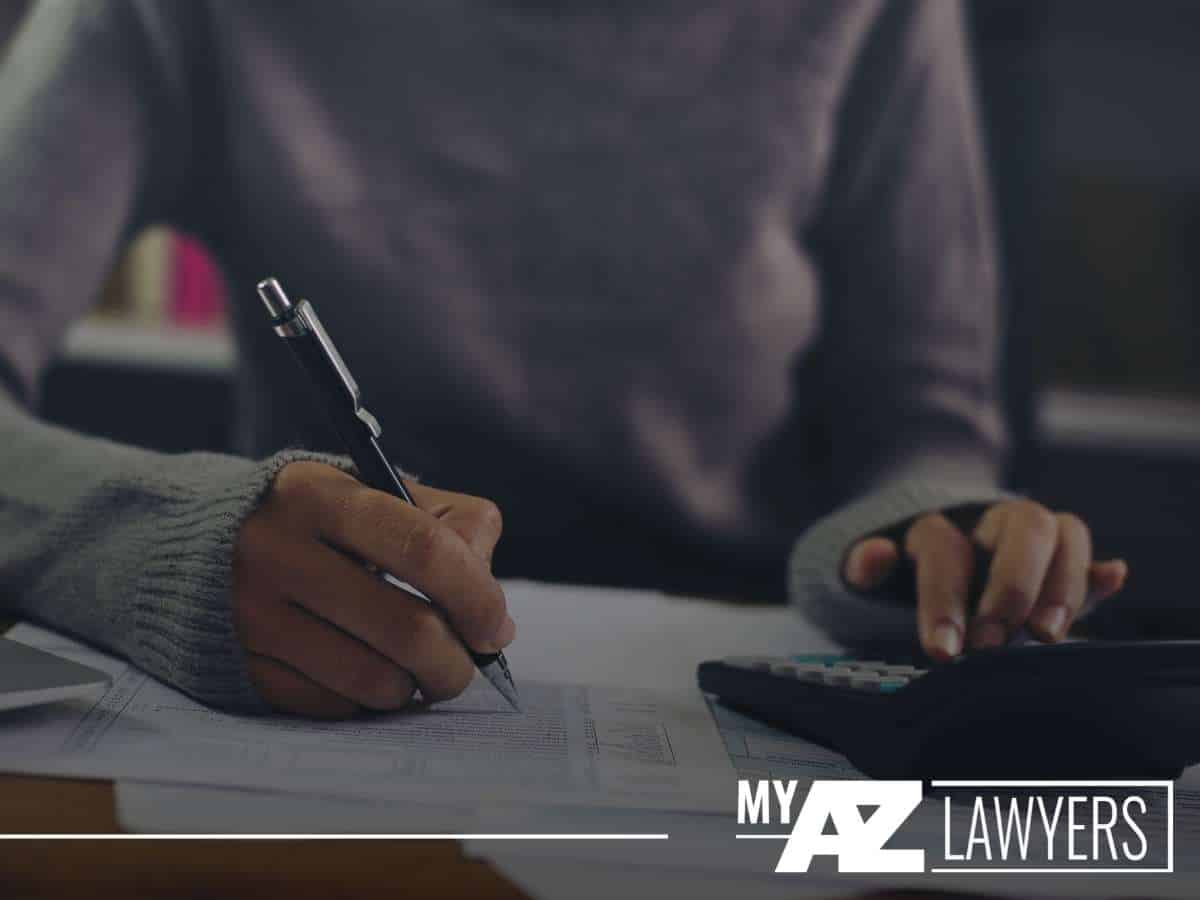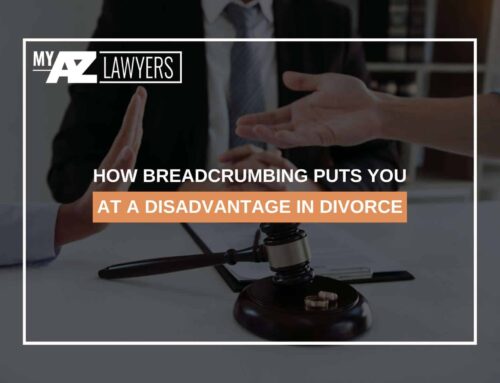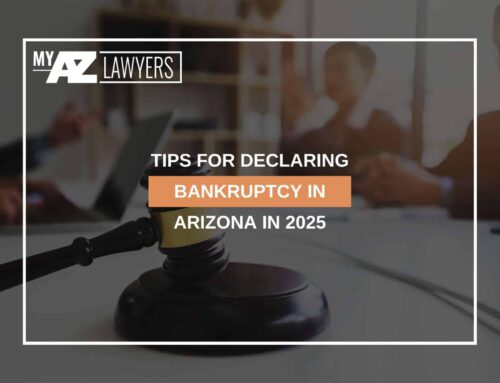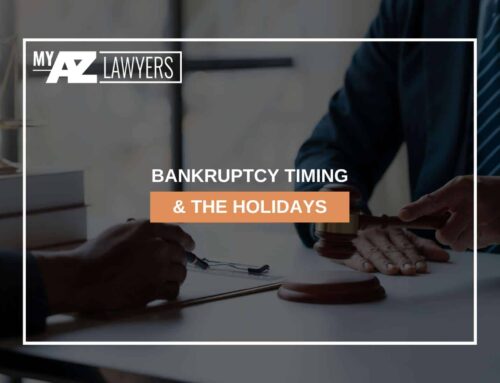Table Of Contents
Tax Refunds & Filing Bankruptcy
What Could Happen To Your Tax Refund If You File For Bankruptcy?
Most people who have looked into bankruptcy know that several of their assets could be at risk, especially if they file Chapter 7 versus Chapter 13. There is a trustee assigned to every bankruptcy case that has a wide range of authority and may sometimes seize a debtor’s assets to sell and pay off creditors. Depending on your financial situation, one asset you may be reluctant to put at risk is your tax refund. For so many Arizona families, a tax refund can be crucial to catching up on expenses incurred throughout the year. But even expecting a tax refund, your debts may have gotten to a point that can no longer be put on hold.

Tax Refunds & Chapter 7 Bankruptcy In Arizona
When you file Chapter 7 bankruptcy, any asset that isn’t protected by a bankruptcy exemption can be taken away by your bankruptcy trustee. Your trustee will sell the asset at auction if applicable, and distribute the proceeds amongst your creditors, keeping a percentage for himself as well. Arizona only allows for the use of Arizona state bankruptcy exemptions, and not federal bankruptcy exemptions as some other states do. This is unfortunate, because the federal exemptions offer a wildcard exemption that can be used on any asset of $1,250, plus up to $11,850 of any of the debtor’s unused homestead exemption. Arizona doesn’t offer a wildcard exemption. Arizona only offers a $300 cash-on-hand (and in bank accounts) exemption for the day of filing, which doubles to $600 for married couples. Nowadays, this is barely enough to buy a tank of gas and a week’s worth of groceries, so it likely won’t help protect your tax refund. Arizona is one of the only states that doesn’t protect tax refunds in bankruptcy.
So what happens to your tax refund will depend in part on when you file bankruptcy and when you receive your tax refund. Ideally, you would wait until you have received your refund and spent it on reasonable things before filing your bankruptcy petition. Reasonable expenses include medical and dental bills, new furniture and appliances, stocking up on groceries and household supplies, and your bankruptcy attorney’s fees. If your tax return is already dispersed and spent before you file your bankruptcy, the trustee has no right to come after it. If not, your trustee could take your tax refund, even after your case has been discharged. The amount they can take depends on the month in which your bankruptcy case was filed.
Turnover Tax Refunds
Sometimes, if you owe interest and other fees to the IRS, this may be offset from your tax refund. Let’s say you owe the IRS $300, and your tax return is $1,000. Eventually, you are distributed $700. Your bankruptcy trustee is only entitled to take $700, the amount you actually received, versus $1,000, the actual amount of your tax refund.
Tax Refunds and Chapter 13 Bankruptcy in Arizona
Filing Chapter 13 bankruptcy works much differently than filing Chapter 7. Your debts will be paid off in a payment plan of 3 or 5 years. You will pay off mandatory debts and as much additional debt is possible based on your disposable monthly income. Disposable monthly income is calculated by first taking your last six months of income to find your average monthly income. After finding your average monthly income, you will deduct mandatory monthly expenses to determine your disposable monthly income. If you don’t have sufficient disposable monthly income to repay your unsecured nonpriority debts in your 3- or 5-year plan, they will be discharged as if in a Chapter 7 bankruptcy. However, if you are going to discharge unsecured nonpriority debts in your Chapter 13 bankruptcy, you probably won’t get to keep your tax refund. Typically, you will only get to keep your tax refund while in an active Chapter 13 bankruptcy if your plan arranges for 100% repayment.
Financial Hardship Exception
You should always expect that you won’t get to keep your tax refund in a less than 100% Chapter 13 payment plan, but there are exceptions in limited circumstances. You can file a modification in your Chapter 13 plan asking the trustee to excuse your tax refund. The modification must describe the amount you want excused, and what kind of financial hardship you will face should you not be allowed to keep the tax refund. The trustee will be more likely to approve your modification if it is for something unexpected, such as a mechanic’s bills after a car break down, rather than something you should have already budgeted for, like groceries. You should hold onto the receipts for any unexpected expenses around tax season if you are in an active Chapter 13 bankruptcy. You will need to file a modification for each year that you wish to keep your tax refund while in your payment plan.
Reasonable Ways to Spend Your Tax Refund
Whether you file Chapter 7 or Chapter 13, the bankruptcy trustee is more likely to let you keep your tax refund if you spend it on something considered reasonable. You probably have already guessed that trips to Las Vegas, expensive nights at restaurants, and designer clothing and accessories will catch the trustee’s attention. Some of the items you may consider spending your tax refund on include:
- Maintenance and repairs on an exempt vehicle
- Educational costs
- Repairing or replacing household items
- Dental and medical procedures (not cosmetic)
- Bankruptcy filing fees and attorney’s fees
- Mortgage, rent, and utilities
There are a few things you’ll want to specifically avoid spending your tax refund on if you plan on filing bankruptcy. The trustee will be reviewing your finances for preferential payments for months leading up to your bankruptcy. If you pay back debts owed to your friends and family members in favor of the rest of your creditors, this money can be taken back by the trustee to distribute more fairly amongst your creditors. If you pay some of your bills in advance too far ahead, this may not be protected as an asset in your bankruptcy. Again, luxury goods likely aren’t protected in a bankruptcy, and you should avoid wearing them to your 341 Meeting of Creditors. Talk to an Arizona bankruptcy attorney about additional concerns regarding spending your tax refund by calling 480-833-8000.
Arizona’s Top Choice for High-Quality, Low-Cost Bankruptcy Representation
Most Tempe bankruptcy attorneys require you to pay all of your fees- both attorney’s fees and court filing fees- up front before your petition can be filed. If you’re looking to spend your tax refund, this can be a convenient way to go through some or all of that money. Otherwise, it might be more realistic to pay for your bankruptcy fees in installments. But many bankruptcy attorneys who advertise payment plans still actually require that your fees be paid in full before filing, or a pre-filing payment plan. At My AZ Lawyers, qualified clients can utilize our Zero Down payment plan option to file their cases for no money down. To schedule your free consultation, fill out our online form or call 480-833-8000.
LISTEN TO THE PODCAST VERSION OF THIS ARTICLE
Arizona Offices:
Mesa Location:
1731 West Baseline Rd., Suite #100
Mesa, AZ 85202
Office: (480) 448-9800
Email: [email protected]
Website: https://myazlawyers.com/
Phoenix Location:
343 West Roosevelt, Suite #100
Phoenix, AZ 85003
Office: (602) 609-7000
Glendale Location:
20325 N 51st Avenue Suite #134, Building 5
Glendale, AZ 85308
Office: (602) 509-0955
Tucson Location:
2 East Congress St., Suite #900-6A
Tucson, AZ 85701
Office: (520) 441-1450
Avondale Location:
12725 W. Indian School Rd., Ste E, #101
Avondale, AZ 85392
Office: (623) 469-6603












